People in India have been using permanent tattoos on the skin for more than a century. Each clan had a distinctive personality frequently characterised by a large size tattoo. There are many social justifications for doing it in these communities.
Most people nowadays get tattoos as a part of a fashionable trend. However, in indigenous cultures, they were done to preserve a memory or as a reminder of something/someone.
Getting tattooed is also known as getting inked. They can be temporary or permanent, but they are typically uncomfortable, even painful at times. I recently met a community which follows this tradition of having tattoos on their skin.
How I Came Across This Tradition
I was visiting the villages of Chandauli in Uttar Pradesh when I noticed a few married women with tattoos and got to know that they belong to an OBC community. A young women said, “Didi! Hum Bind hain, pichra jaati hai” (We are from Bind community, it comes under ‘Other Backward Class’.” The Bind is a community group in Uttar Pradesh, Bihar, Madhya Pradesh, Assam, West Bengal, and Tripura. They follow Hindu religion, primarily live in eastern Uttar Pradesh and speak Bhojpuri.
Also read: Qala Aur Kaam: A Day In The Life Of A Street Tattoo Artist
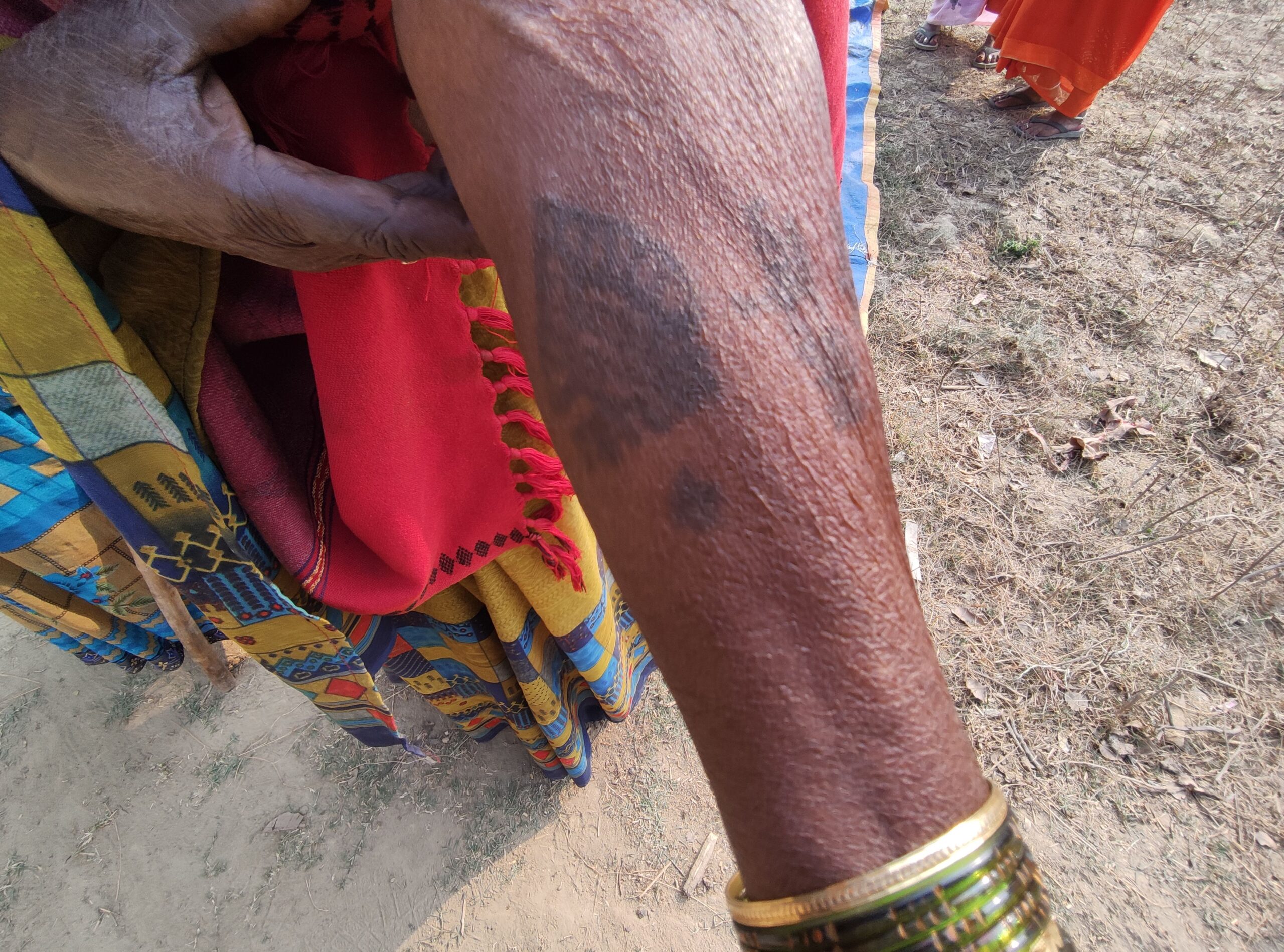
The tattoo artists here are not professionals. They are amateurs who work with a needle machine and ink. Firstly, they draw an outline of the design. Next, they insert the ink using needle machine. The procedure appears to be short and simple. Women here say that it was painful the first time but then they got more tattoos on different parts of their body and it didn’t hurt so much. Mainly, they get it on their hands and cheeks.
Some of the common designs are flower, peacock with flower, mehendi design, and also one’s spouse’s name. For cheeks, it’s usually a small dot.
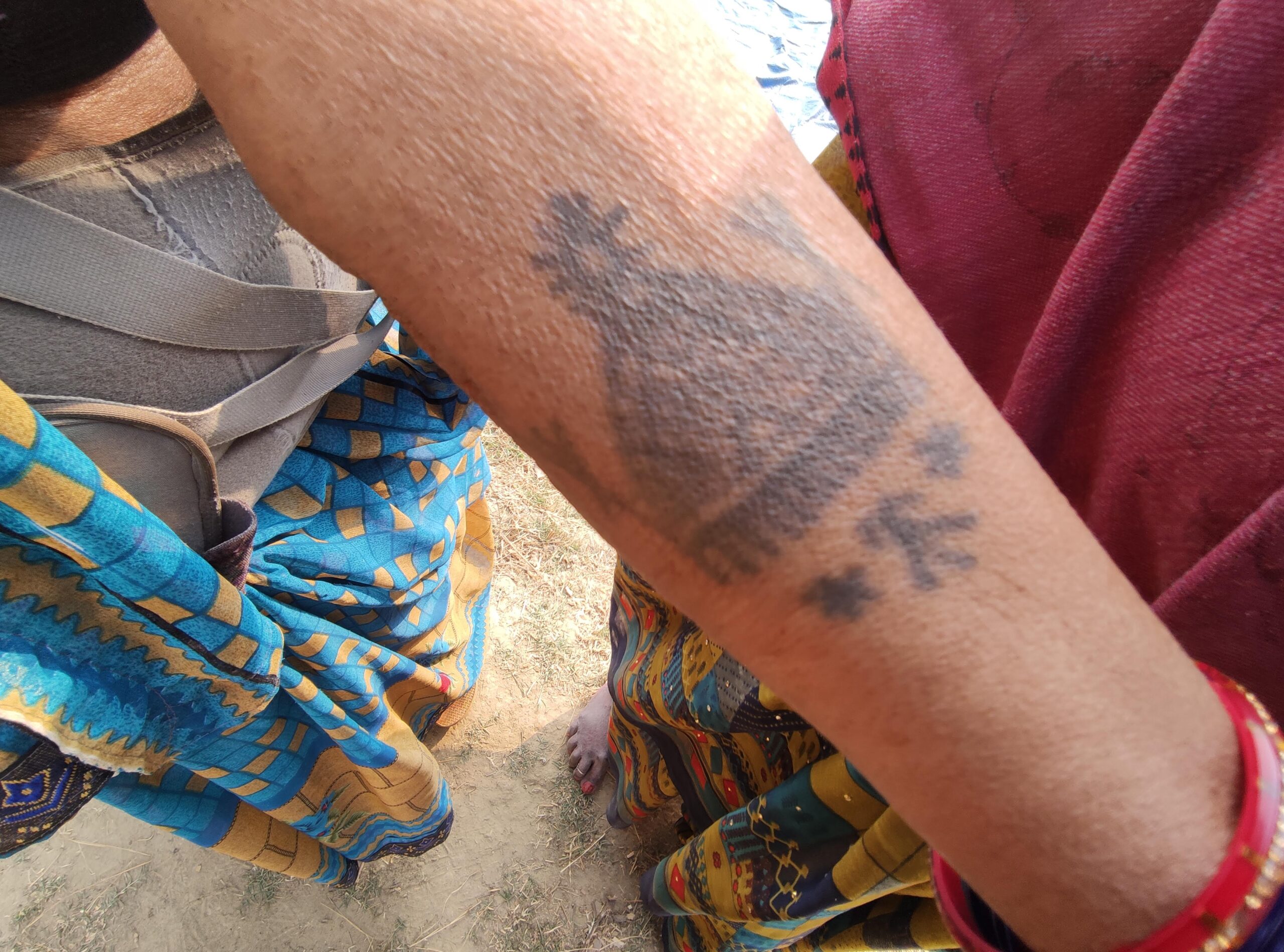
The Rules Differ For Men And Women
This community follows an unwritten tradition where women get inked after they are married. One can also choose to do it before their wedding but it becomes mandatory for the married ones to do it. The men of the family don’t eat anything cooked by the un-inked married women. Their ancestors have passed on this practice and so, everyone follows it.
On asking whether the same tradition applies to men, they denied it. It made me think whether restrictive and painful traditions are imposed only on women. In this case, why do they keep doing it if it hurt them the first time? Do they have a choice to say no? A bunch of such questions and concern for women rushed through me during these conversations.
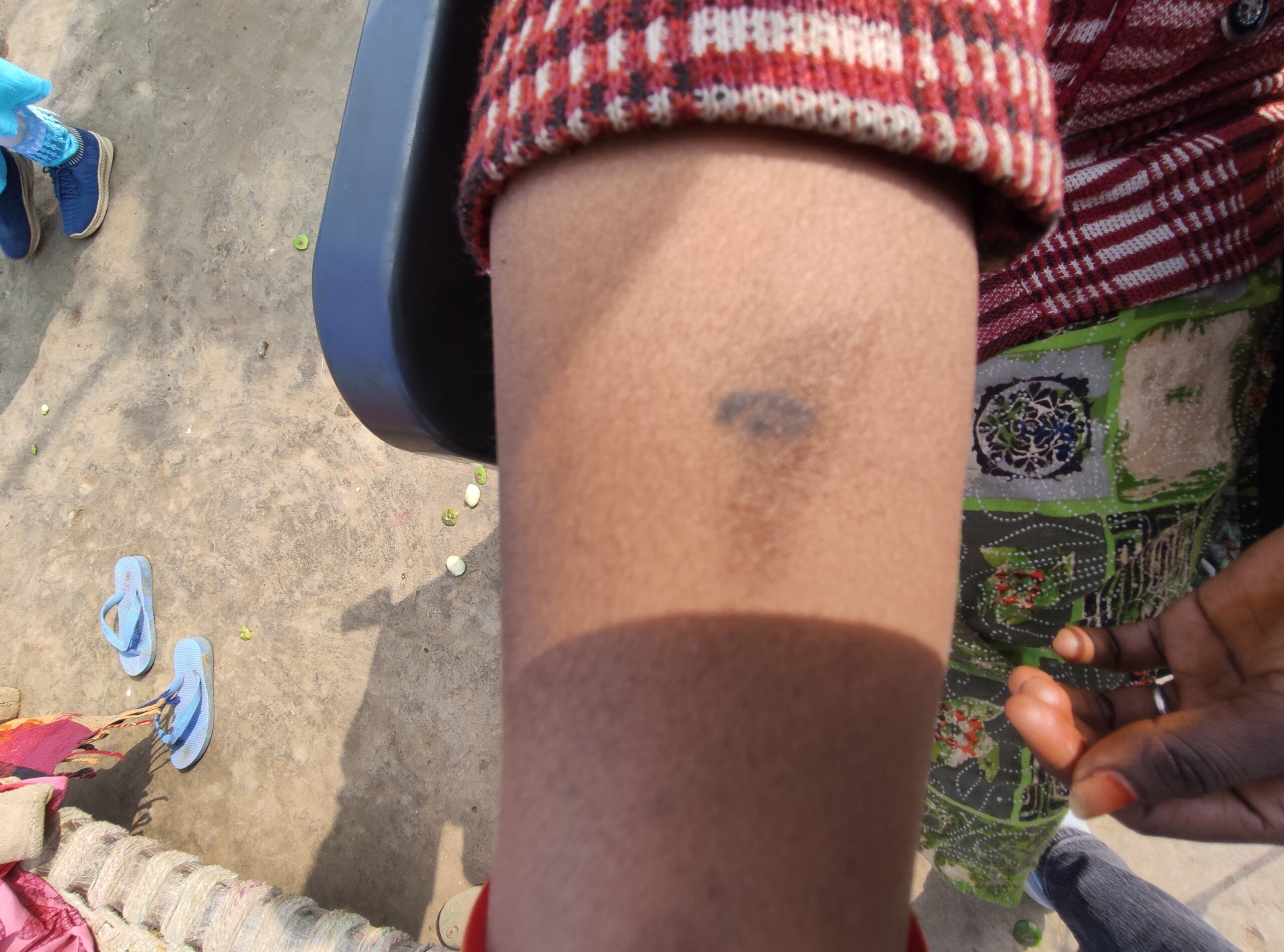
Whether it is the tattoos or something else, it’s the matter of choice and the agency to exercise that choice. Whether one wants a tattoo to be a symbol of something permanent and what that would be, has to be decided by her. But women have made peace with it. They have chosen their battles and this one is just not big enough to fight for. I find it difficult, even unwilling, to accept it.

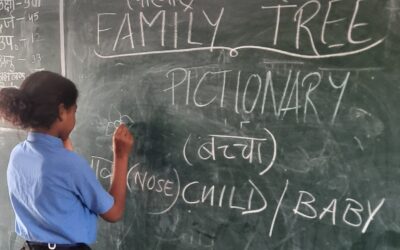
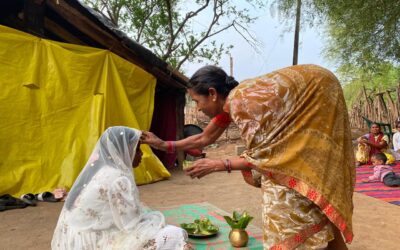
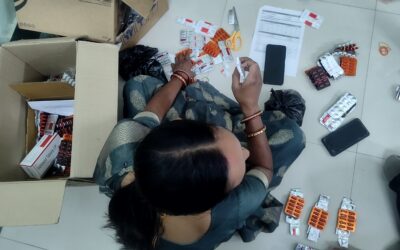
0 Comments